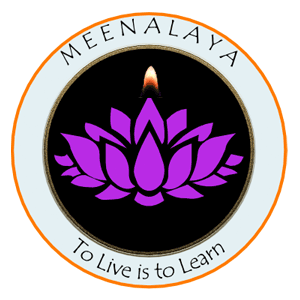Daily nectar of word meaning Day 04
நாள்தோறும் சொற்பொருள் அமிர்தம்
Surely, we need more than the ‘pratyaksha-pramāna’, the direct instrument of knowledge, if the attributes of object that we seek to know, are all not directly perceptible. This we all observe in life. The term ‘anumāna-pramāna’refers to what we commonly call the inference, the method of drawing some conclusions from the available information; for example, inference of fire from the distant smoke, or the passing of an ambulance from the distant sound of a siren. However, anumāna-pramāna cannot be independent as it relies on a previously existing and validated knowledge, such as a need for a referential knowledge about “smoke and fire” or “the sound of ambulance” in the examples. Is the inferential knowledge valid? It depends, as it is subjected to the validity of the underlying referential knowledge. Briefly, there are other variations to inference. For example, ‘upamāna-pramāna’ is inference using a near-by example, like knowing about a ‘Zebra’ by using an example of a ‘horse’. There is ‘arthāpatti-pramāna’, which is inference based on circumstantial evidences. For example, you may change your mind about a ‘great soldier’ after seeing evidences of his cowardice. There are others and the logicians salivate for dwelling deep into these variations. We will pass, except for the most important instrument of knowledge, ‘shruti-pramāna’, because without it, we have no recourse for liberation! Oh really?
(to be continued – Mee. Rajagopalan – 13/05/2017) (தொடரும் – மீ. ராஜகோபாலன், 13/05/2017)


[Sorry, this is to be loaded]
